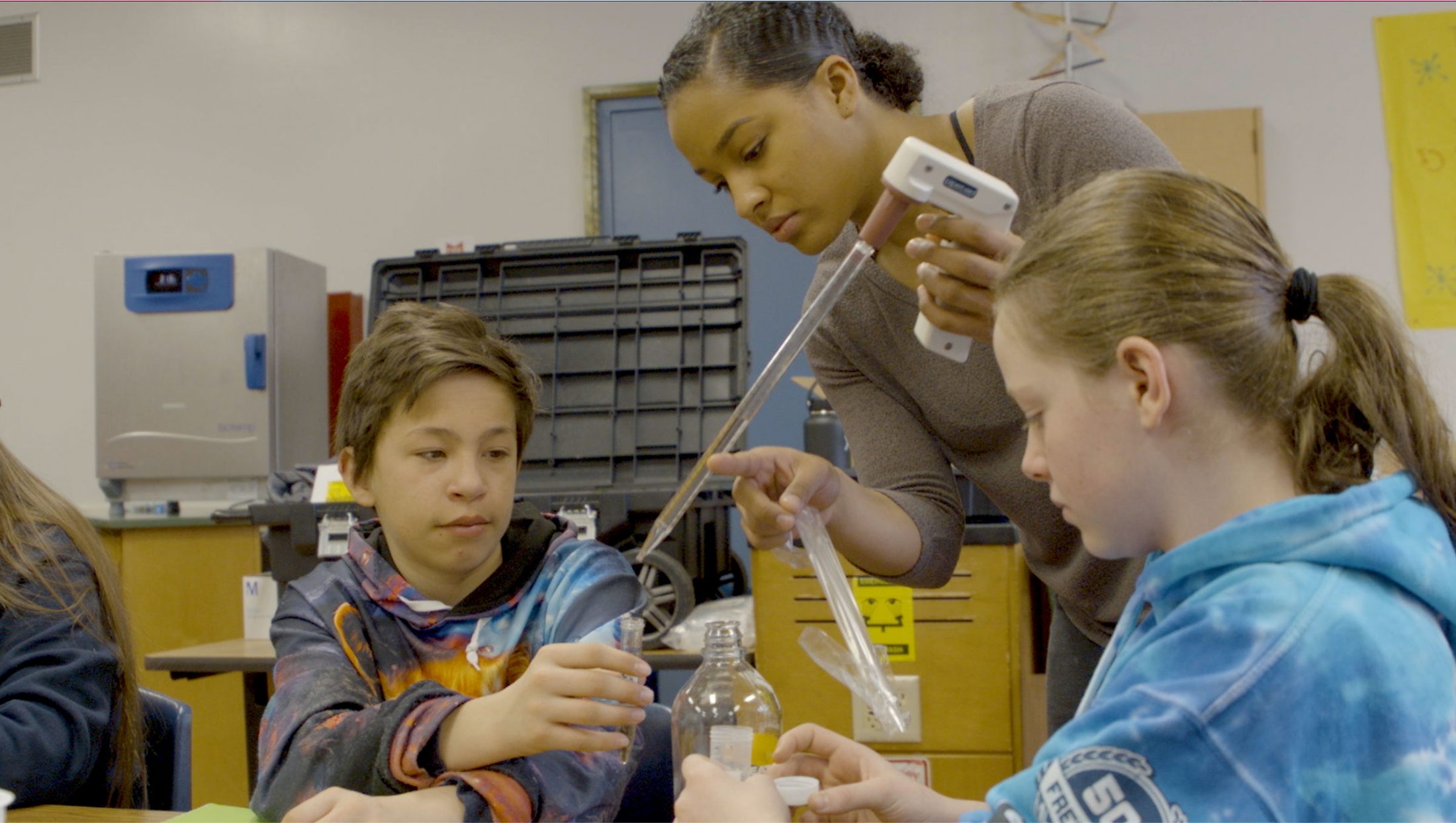The National Institutes of General Medical Sciences of the NIH Science Education Partnership Award (NIH-SEPA) program has awarded a five-year, $1.3 Million grant to Montana Technological University for an exciting science education research project titled, “Phages Helping Acquire Genuine Experiences in Science (PHAGES).” Dr. Marisa Pedulla, a Professor in Montana Tech’s Biology Department and Rayelynn Brandl, director of CFWEP, are co-leading this effort.
PHAGES builds on Montana Tech’s previously funded 5-year SEPA project, Bringing Research Into the Classroom (BRIC), and demonstrates a sustainable model for faculty across the country to expand phage discovery outreach to K-12 teachers and students. PHAGES students and teachers will engage in genuine research: citizen science bacteriophage (viruses that infect bacteria). discovery, and contribute to the known collection of phages. PHAGES teacher leaders will gain the skills to independently prepare and deliver phagedigging for their own classrooms and mentor teacher colleagues to expand phagedigging to other classrooms. Thousands of Montana’s K-12 students will engage in a relevant citizen science project by participating in the phagedigging classroom visits. Students collect soil and water samples from their local environments and test their samples for phages capable of infecting Mycobacterium smegmatis. Students who discover a phage choose its name, providing project ownership. The student-selected names will be added to the phagesdb.org database.
“Thanks to the five years and tireless work of the BRIC team, especially CFWEP’s Chris Doyle, and support from the NIGMS and NIH through the SEPA and INBRE funding, Montana’s Office of Public Instruction, partnerships with area school districts and the Washoe Fish Hatchery, we have a solid foundation for successful implementation the new SEPA-funded PHAGES project,” remarked Dr. Pedulla. “Thanks to all teachers and students, including many Tech students, who have participated in phage discovery. We are excited to bring more teachers and students into the program. Special thanks to Patricia Southergill and Dr. Beverly Hartline for guidance during the preparation of the proposal.”
Montana Tech Chancellor Dr. Les Cook added, “The PHAGES project, which supports the early pipeline component of workforce diversity, exemplifies Montana Tech’s commitment to outstanding STEM educational experiences for K-20 students. The SEPA award recognizes Tech’s high-quality faculty and staff and their commitment to science education which acknowledges Montana Tech’s special focus as a premier science and engineering institution.”
“STEM learning is vital to a well-rounded education, and will play a big role in the 21st century economy,” said U.S. Senator Jon Tester. “The PHAGES program will give thousands of Montana kids an unforgettable experience, exposing them to lab work, scientific methods, and critical thinking to combat some of our country’s biggest problems at a world-class institution. I’m excited to see the results of their research.”
PHAGES will allow students and teachers to engage in relevant, meaningful classroom research experiences and provide a mechanism to participate in paid summer research experiences at Montana INBRE institutions, including Montana Tech, starting in the summer of 2019. Additional opportunities for citizen scientists include the summer outreach programming that will be offered by PHAGES teacher leaders in reservation communities and during summer camps for deaf students. Preliminary classroom visits will begin in the fall of 2019, ramping up in the spring of 2020. Four years of one-week summer teacher research workshops will begin in the summer of 2020, with a capstone symposium in 2024.
In the summer of 2019, the funding supports three students to participate at Montana Tech in paid intensive summer research experiences, called SEPA-INBRE Pipeline Summer Research, and one at Montana State University. Student researchers at Montana Tech will receive training in Responsible Conduct of Research, safety, microbiology, molecular biology, bioinformatics, and electron microscopy, opportunities for college and graduate studies in STEM fields, and poster presentations. They will present their findings at a campus-wide symposium open to the public on August 1.
PHAGES teacher leaders are:
• Kate Mattern, Anaconda High School
• Robin Hehn, Columbus High School
• Megan Lane, CR Anderson Middle School (Helena)
• Sarah Urban, Capital High School (Helena)
• Steve McCauley, Jefferson High School (Boulder)
• Linda Rost, Baker High School
2019 SEPA-INBRE Pipeline Summer Research Students:
• Emily Kelly, Butte, MT
• Cassy Burke, Helena, MT
• Henry Phillips, Anaconda, MT
• Grace Ludlow, Helena, MT
This project and its benefits for Montana’s teachers and students are made possible by a Science Education Partnership Award (SEPA) from the National Institute of General Medical Sciences (NIGMS) at the National Institutes of Health (NIH).
For more information, about the grant, please contact the project leaders: Dr. Marisa Pedulla at mpedulla@mtech.edu or Rayelynn Brandl at rbrandl@mtech.edu.

